Saving pelicans
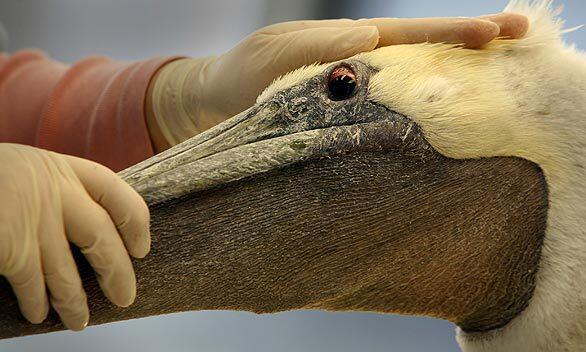
Erica Lander of the International Bird Research Center in San Pedro examines a brown pelican. Recently, wildlife rescuers throughout California have had their hands full with the birds, which have been found in unstable conditions on highways and in alleys, miles away from their coastal homes. (Mark Boster / Los Angeles Times)
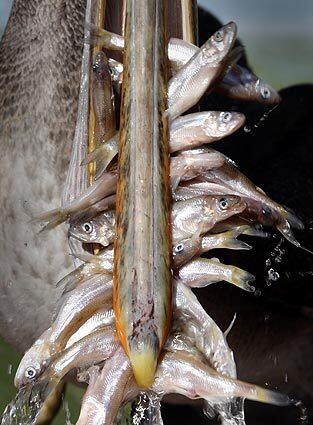
They may be sick, but when the dinner bell rings at the center, the pelicans are ready for a mouthful of smelt. (Mark Boster / Los Angeles Times)
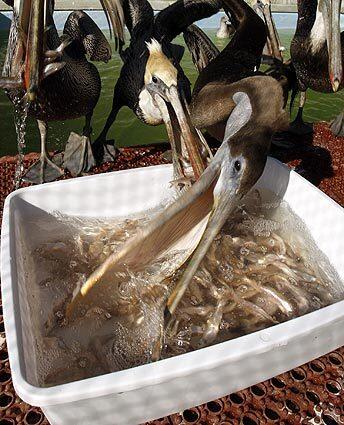
It’s first come, first served at the center. Many of the birds have exhibited the same symptoms: disorientation, extreme fatigue and bruises inside their pouches. (Mark Boster / Los Angeles Times)
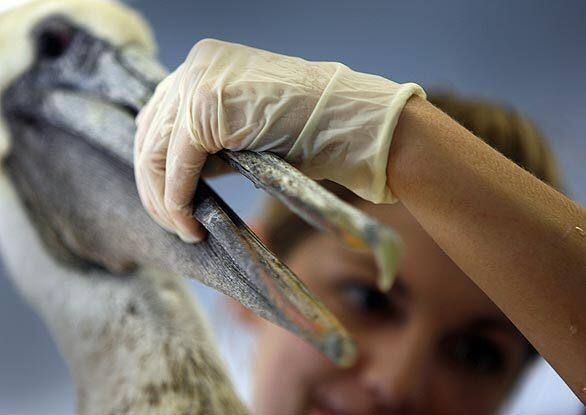
Rehabilitation technician Kylie Clatterbuck holds the beak of a brown pelican -- they have a mean bite -- while the bird undergoes a check up at the center. The birds are slowly being nursed back to health with a steady diet and tender care. (Mark Boster / Los Angeles Times)
Advertisement
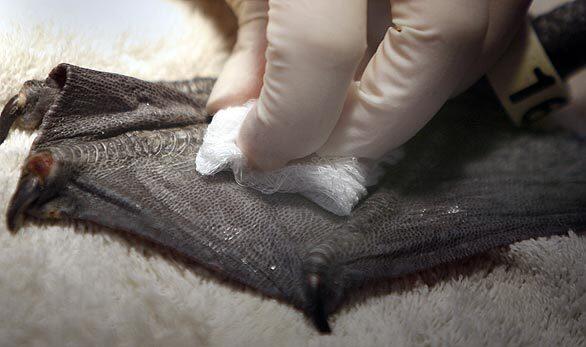
Assistant rehabilitation manager Erica Lander wipes the webbed foot of a pelican after drawing blood. Blood samples have been rushed to laboratories that specialize in detecting potentially fatal algae toxins that have plagued the species in past years. (Mark Boster / Los Angeles Times)
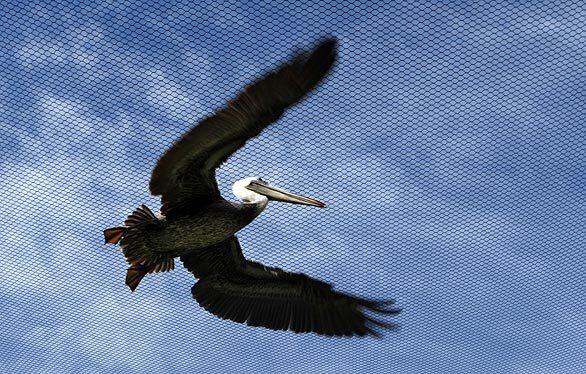
A sick pelican takes flight in the aviary at the San Pedro center. (Mark Boster / Los Angeles Times)







